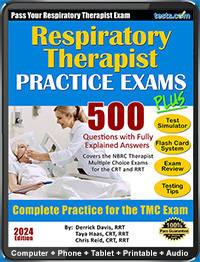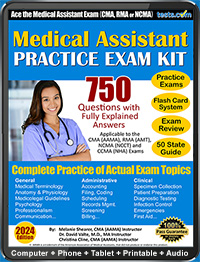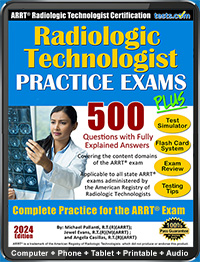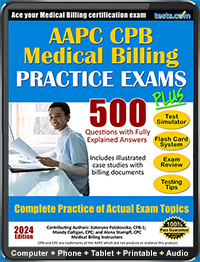Medical Technicians Test Guide
By: Erin Hasinger, Tests.com
Medical technicians and technologists play an important role in health care. From taking x-rays to examining blood, med techs assist doctors and nurses in diagnosing and treating patients and in providing overall patient care. Medical tech positions include those in sonography, respiratory therapy, medical assisting, asthma education, physician assistant, phlebotomy and radiography. All of these positions have options for certification; some are voluntary while others are required for state licensure.
Certifications
Sonography: The American Registry for Diagnostic Medical Sonography (ARDMS) offers two sonography certifications: Registered Diagnostic Medical Sonographer and Registered Diagnostic Cardiac Sonographer. All certification candidates take the Sonography Principles and Instrumentation Exam as well at least one specialty exam. Medical sonographers can choose from specialties in abdomen, breast, fetal echocardiography, neurosonology and obstetrics and gynecology. Cardiac sonographers can specialize in adult, pediatric or fetal echocardiography. For more on sonography certification exams, see the ARDMS Sonography Test Guide.
Certified Respiratory Therapist: Certification for respiratory therapists is voluntary. A certification exam is offered by the National Board for Respiratory Care. The three-hour exam includes 160 questions that cover therapeutic procedures, clinical data and respiratory equipment. For more on the Certified Respiratory Therapist Exam, visit the Certified Respiratory Therapist Test Guide.
Medical Assistant: Medical assistant certification is voluntary. Those who elect to take the Certified Medical Assistant exam offered by the Certifying Board of the American Association of Medical Assistants can earn the Certified Medical Assistant, or CMA, designation. Three hours and fifteen minutes are given for the exam, which includes 200 multiple-choice questions. For more, see the CMA Test Guide.
Medical Tech: Med tech certification is voluntary. Certification exams are available from a number of different organizations, including the American Medical Technologists. Exams vary, but most cover topics such as laboratory procedures, chemistry, hematology, immunology and microbiology. To learn more about medical tech certification, read the Medical Tech Test Guide.
Asthma Education: The National Asthma Educator Certification Board (NAECB) administers an exam for the certification of asthma educations. The Certified Asthma Educator (AE-C) credential is available for physicians, nurses, therapists and social workers who work with asthmatic patients. For more, see the Asthma Educator Test Guide.
Physician Assistant: The Physician Assistant National Certifying Exam (PANCE) is required for physician assistants in all US states. Those who pass the exam earn the Physician Assistant-Certified (PA-C) credential. The six-hour exam includes 360 questions that cover basic medical and surgical knowledge. For more on the PANCE certification exam, please see the PANCE Test Guide.
Phlebotomy: More than ten different organizations certify professional phlebotomists, including the National Phlebotomy Association, the American Society of Phlebotomy Technicians and the American Society for Clinical Pathology. Exams and eligibility requirements vary, but most phlebotomy certification exams will include questions on blood collection, medical terminology, human anatomy and more. To learn about phlebotomy certification exams, see the Phlebotomy Test Guide.
Radiography: The American Registry of Radiologic Technologists (ARRT) offers a voluntary certification program for radiologic technologists. Candidates for certification must complete an accredited radiology program and pass an exam. Two hundred and twenty questions are asked during the three-and-a-half-hour exam. For more on radiography certification exams, see the Radiography Test Guide.
Wound Care: Physicians, physician assistants, nurses, nurse practitioners, and occupational and physical therapists who work in wound care can consider pursuing voluntary certification specifically for wound care. Three major certification organizations have programs for wound care certification: the Wound Ostomy, Continence and Nursing Certification Board (WOCNCB), the National Alliance of Wound Care (NAWC) and the American Academy of Wound Management (AAWM). To learn more about the exams offered by these organizations, read our Wound Care Test Guide.







